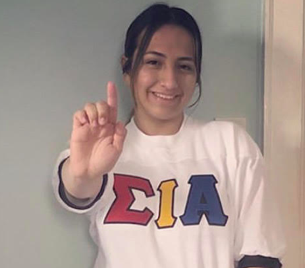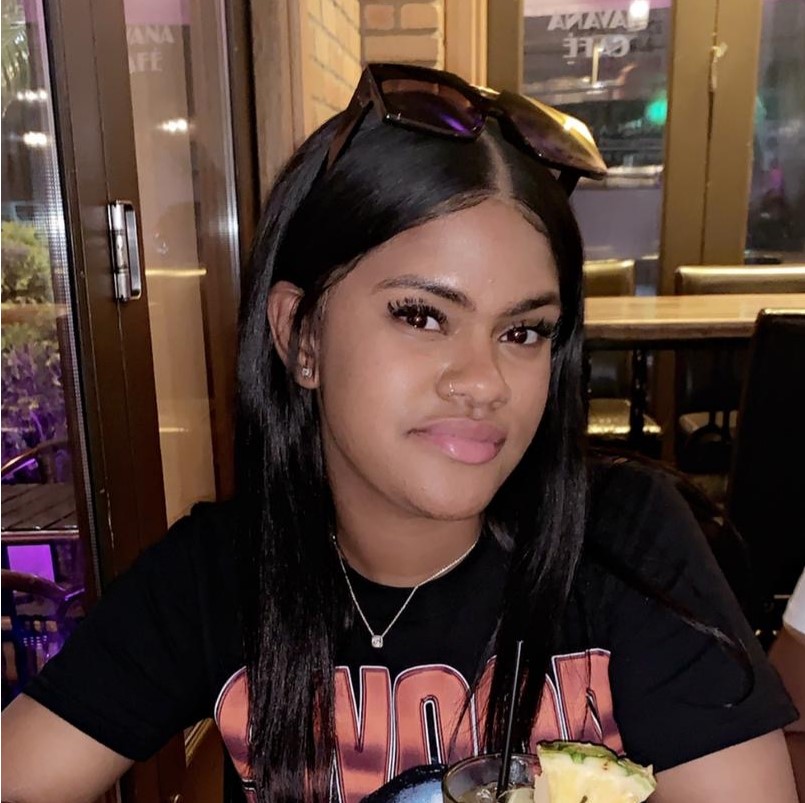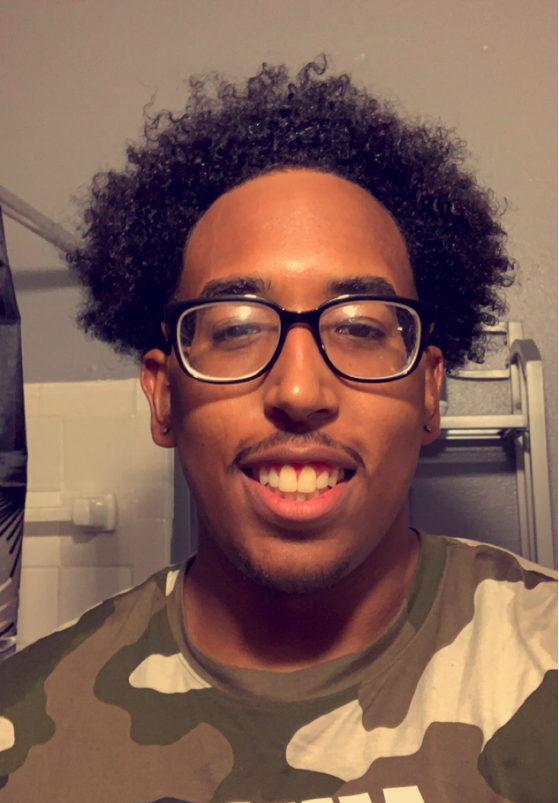Posts Tagged ‘job’


I am a freshman at Hunter College currently studying Biology. After college, I plan on going to medical school to further my education. I do not pay for school on my own, I receive financial aid. I receive TAP, Pell, and am a part of the SEEK opportunity program. I pay for my textbooks with the money I receive from Seek. I do not work but am trying to find a job to help support my family with money. I do not receive SNAP or work-study and pay for food with my SEEK checks and other financial aid. If I did not receive financial aid, I would have to resort to taking out a loan or finding a job so that I can make my own money. I am somewhat concerned about graduating on time, because I might not be able to complete all of my prerequisites for my major in time.
We need a fully-funded CUNY for low-income students who are not in any opportunity programs like SEEK or EOP and have to depend on other means such as working or work-study to pay for college. Many students could benefit from increased investment. Too many students have to rely on balancing jobs, school, and loans.


I chose to attend SUNY ESF for a few different reasons, the biggest being cost. My father is a doctor, and he is still paying off the loans that he took out to go to medical school three decades later. I didn’t want to end up in a similar situation as him, being forced into debt for the rest of my life. But even at a SUNY school, it keeps getting more expensive to be a student. Our dorms are almost three times as much as tuition, and we are forced to live in them for our first year. Tuition is increasing, but there have been constant cuts to programs and opportunities that the school can provide for us.
I’m studying environmental science, and our textbooks cost so much! I don’t know how New York expects students like me to get our degrees while having so many extra costs. I was fortunate enough to receive an academic scholarship to ESF so I can avoid taking out loans or relying on my parents. This means that I need to dedicate extra time to my studies to keep the scholarship, which makes being able to get a part-time job very hard. I chose ESF to avoid going into debt, but with tuition hikes, living expenses, and the additional fees and materials I need to pay for, I don’t know if that is possible.


I’m currently a junior studying Sociology at SUNY Cortland. After graduation, I hope to attend graduate school near home and to find a part-time job. I receive scholarship help like TAP and Pell Grants. I support myself financially, so I work during my summers and during the school year to pay for textbooks and to pay for my food costs because I don’t receive any support for food like SNAP.
I am very thankful as a first-generation student to be able to go to college. College is still expensive even with all these financial aid grants, but everyday I work hard to be a better person and make my parents proud, so at the end of the day everything is worth it.
If SUNY were fully-funded, then students could focus on classes. Financial stability for some students can be very stressful which can impact how they do in school. One of the biggest challenges was adjusting to the distance from Cortland to my hometown and fitting in, since Cortland does not have a very big Latin community.


I am majoring in Liberal Arts at BMCC and this is my second year at the school. I have taken an interest in business and accounting and after I graduate I plan on pursuing an internship in those fields.
I am one of the many CUNY students who heavily relies on TAP and the Pell Grant to pay for school. I was also a part of BMCC’s College Discovery program which helped me pay for my textbooks. To provide for myself and assist my family, I work a part time job. My biggest challenge as a CUNY student has been not being able to make use of the resources we have, such as tutoring, because my work schedule would not allow it. My financial struggles have made it quite difficult to graduate on time.
As a working class student, I live with the fact that if it were not for federal assistance I would not be pursuing a college degree right now. Education is not a privilege, it is a right. If people are required to have a degree to make a decent living then education should be more accessible. Most CUNY students are working class students. CUNY deserves better funding so it can continue to provide, improve, and expand services like the childcare center. We deserve the right to an education and better future.


I’m a second year student majoring in business administration, with the goal of getting my master’s in business administration after graduating. I came back to school so that I could gain the knowledge I need to eventually make more money for my family and be self-employed.
I have kids, and it’s not easy to go to college while working and raising a family at the same time. I’m trying hard, but it’s definitely not easy. The support that programs like TAP and ASAP provides allows me to attend school and invest in the future. At the same time, I work as a Direct Support Professional at a group home. Without financial aid, I don’t know if I could afford to go to school, and if I did, I would probably only be able to do like four credits per semester.
In general, I wish that the system were clearer and that CUNY publicized its services more. I might have used the child care center, but I don’t know anything about it or who to ask. A lot of things are not well publicized, especially when you’re coming back to school after a period of working and need to adjust. The ASAP program advisors are helpful, but I know some people who were severely set back by incorrect information from advising.
We need to make CUNY free so more people can get a quality education, and we need to make sure that people are able to access its services.


I was raised in Hempstead, NY in Long Island, in a town that’s most talked about as “chaotic” and “helpless.” I was raised in a family of six, with two Latino parents who came into this country with a different vision for my sisters and me—to pursue much more in this life.
We lived in a basement, all six of us. It was deteriorating and we had no stove, no refrigerator. We starved together; we cried together. Every night, I saw how much I was losing weight, and I just let it happen because I used all my funds just so that my family can eat. Senior year of high school came, and we were still in the basement. I received 6 scholarships, and to be honest, I didn’t use them for me. I used them to feed my family.
I wasn’t psyched about the milestones like high school graduation, but then I applied for an on-spot admissions to Long Island University, to the HEOP Program. I sat with Directors who questioned my reasons for wanting to be in college, and I answered them: “I want to support my family.” I became an HEOP student, and I received academic and financial support. This brought tears of joy. Upon my return back to Hempstead, my parents hugged me and told me, ”We are proud of you” in Spanish.
In 2018, everyone in my family went our separate ways, due to the financial burdens we kept facing. I wasn’t ready for the leap. I kept this secret from my family, but I became homeless and had to sleep inside my co-worker’s car because I had no funds and nowhere to stay. Now, in 2019, I rent a room in Hempstead, and I visit my family.
I am now a SEEK student at Queens College and transferred from LIU Post with a 3.5 GPA. Because of HEOP and SEEK, I can almost give my family and myself the better life we desired for a long time. Because of these programs, I am able to advocate for the youth in Hempstead and tell them that no matter how hard the trials are back at home, an education will heal them. It’s because of programs like HEOP and SEEK that I’ve gained confidence and the voice to share my story. As a SEEK student now, I am proud to say that I receive all the help I need from the SEEK program in Queens College.
We all have a story to share, and I am not politicizing this issue. I am neither a Republican nor a Democrat. I am a human being that cares for all. Us students, who face immense poverty and some academic trails, need SEEK, HEOP, and EOP. Funding these programs will illuminate the lives of those who need support and help those who struggle and yet work multiple jobs, just to receive a degree.
Because of Queens College SEEK, I was able to share my story with you, and I thank you for your time. Please continue to fund these programs because the underrepresented need them.


I’m a sophomore, majoring in history and most interested in focusing on European history, specifically around the world wars. I’d like to pursue a master’s degree and eventually become a professor. It was my high school history teacher who inspired me to get into history; they were particularly good at connecting historical events to current events of today in a fun, relatable way.
I’m currently paying for tuition through TAP, with my parents supplementing out-of-pocket costs to cover the leftover tuition, textbooks, and school fees. I’m the fourth student in my family, with three older siblings, who attended out-of-state schools, took out loans to pay for tuition, and are now paying off their debt.
This is stressful for our family, as the cost of paying for school out-of-pocket and the cost of paying off debt becomes a family challenge. For me in particular, I feel the stress of considering balancing full-time school and part-time work to help alleviate the stress on my family’s budget.
As far as the biggest challenge paying for college? Textbooks. I have to weigh the pros and cons of buying each book individually; I play a complicated guessing game to determine which books will be necessary for which classes in order to be successful while saving money. This is a familiar game among many undergraduate students. How do I get an A without breaking the bank? Students should never have to go without textbooks—a key component in receiving the education we’re already paying for—in order to conserve money needed to get by.
Ultimately, my goal is to receive two degrees from Queens College while taking on as little financial burden as possible and being connected to stable career opportunities, and I don’t think that’s too much to ask for.


I am a senior at SUNY New Paltz majoring in communication disorders with a minor in deaf studies. After college, I intend on pursuing a career as an audiologist. I am currently employed as a cashier at the Student Union Building, and I also do catering for on-campus events.
Working on campus is the only way I can ensure that I will stay enrolled in school. I have always had to work in order to manage my expenses, especially school fees that were mandatory for me to pay out-of-pocket in order to stay in school. I have come really close to being kicked out of school because my financial aid was not enough to cover all of the costs. Thankfully, I was able to use the money I received from my campus jobs to pay off any remaining amounts.
I receive both TAP and Pell Grants, but that is not enough. I had to increase my unsubsidized loans for it to cover tuition and room and board. I could only get approval to increase my unsubsidized loan if my Parent Plus loan was denied.
I am an Educational Opportunity Student (EOP), and this program has helped me cover the majority of the costs for school. Without EOP, I’m not sure if I would still be in college. This program has been a great help for me from the beginning.


I am a junior at SUNY New Paltz, studying sociology with a concentration in criminology and a minor in communications. On campus I have been a student assistant at the Sweets N’ Treats bakery and a student chef at Peregrine Dining Hall. Working at these locations provided help with finances and helped me buy food because after a while campus food gets old. Working on campus also helped me pay off the money that I owed to the school because financial aid couldn’t cover all of my tuition and fees even though I receive the maximum amount for the TAP and Pell Grants.
I am very grateful to be a part of the Educational Opportunity Program (EOP). EOP has helped me in tons of ways. First, in terms of financial aid, they provide up to $1,400 towards financial aid. Although it does help, it still did not cover all of my financial needs for the semesters. Sometimes towards the end, the program receives leftover money from schools in order to help fund the missing amount from a student’s financial aid.
EOP has helped guide me through the criteria of college by giving me an idea of what to expect from classes, especially since it was a big transition from high school. EOP has also helped me in the process of deciding what major was best for me, and the program provided connections in order for me to succeed. Those resources are even there for me when the semester hits and anxiety and stress takes over my body.
I have been facing problems with financial aid since I started school. I was never told that the amount of financial aid you receive depends on the amount of credits you earn in a year. One semester during freshman year I took 12 credits instead of 15, and you need 30 credits to be considered a sophomore. At the beginning of my sophomore semester, I had to take about a thousand dollars out-of-pocket in order to pay off the school since my financial aid didn’t cover all of my bill. And with loans, I’m not allowed to take out a certain amount of money because I didn’t qualify to be a sophomore that year. I was too scared to take out another loan (the Parent Plus loan).
It’s really hard to pay that amount because $1,000 isn’t pocket change, especially since I come from a family that relies on an insignificant income. I had to rely on the funds that I earned from working at the on-campus job that I had. This year I was faced with taking out the Parent Plus loan, and I ended up doing it. A lot of my friends dropped out because they couldn’t pay the amount that they owed to the school.


While I’ve been lucky enough to have family members that have the means to support me through school, tuition and fee hikes have taken a major toll on my friends. Almost everyone I know is taking a full load of science classes that include lab sessions. They all have to work long hours.
Because we are majoring in hard sciences, textbooks can easily be over a thousand dollars a semester on top of rising tuition costs. We’re expected to either pay now or take out tens of thousands in loans that we can pay if we get jobs after college. This makes it stressful to just be a student because getting a well-paying job is so important.
We’re supposed to be the ones protecting our planet and developing new technologies to fight climate change, but how can we do that if learning how to do that is so difficult? Almost everyone I know talks about how worried they are about their future post-graduation.
I’m also extremely worried about the SUNY system because I have a younger brother and sister who will both be going to college in a few years. If the economy tanks, and my parents lose their jobs, what are my siblings supposed to do? They haven’t been able to save for themselves because they’ve been brought up thinking that they’ll be okay. But if school keeps getting more expensive, I’m not sure what they’ll be able to do.





